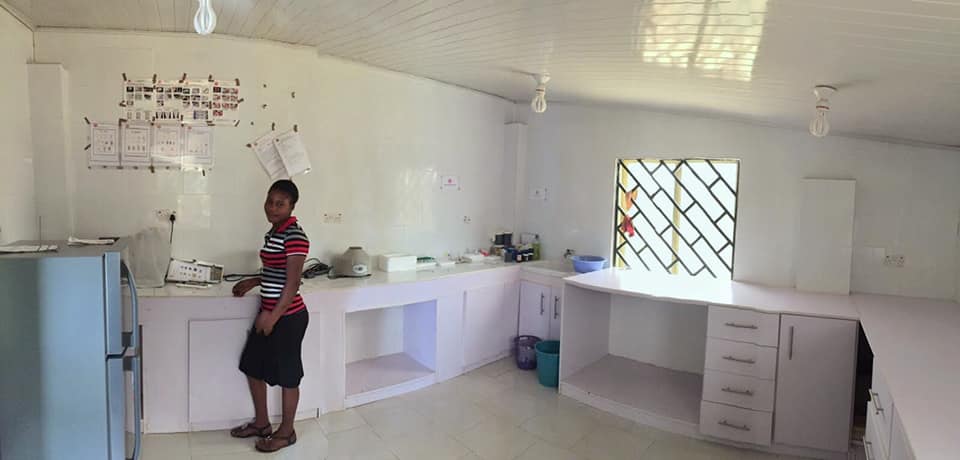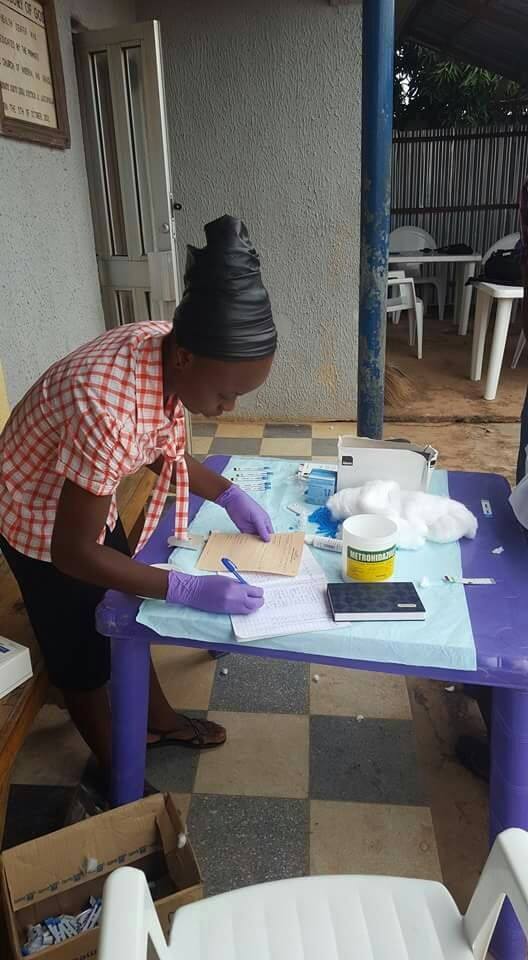|
In the tropics typhoid fever is a common infectious disease, that is also endemic in Nigeria
Typhoid fever is a systemic infection caused by Salmonella Typhi, usually through ingestion of contaminated food or water.
The acute illness is characterized by prolonged fever, headache, nausea, loss of appetite, and constipation or sometimes diarrhea.
The standard tests for typhoid are blood culture, stool culture, and urine culture.
These tests are seldom done due to issues around lack of efficient laboratories or diagnostic centers.
Typhoid fever still poses a serious health challenge in Nigeria and with antibiotic resistance it is a major health security issue.
A combined approach that includes the use of typhoid vaccines, improvements in sanitation, and safe water supply is essential.
Dispensed feminine hygiene products at a makeshift pharmacy under a tree at a refugee camp.
Improvements are seen when the community motivates female literacy, and when families have access an improved and clean water supply.
A basic preventative medicine health talk about hygiene to help people adapt behaviors that will prevent illness.
Improved sanitation has a direct impact on the spread of Typhoid and the mortality rate of children younger than 5 years.
Taking questions and answers about basic health care issues to improve community welfare.
Sources:
It's Not Typhoid - Tackling Misdiagnosis of Typhoid Fever in Nigeria - Medium Typhoid Fever Tracking the Trend in Nigeria - Research Gate
0 Comments
Leave a Reply. |
NewsCategories
All
Archives
December 2023
|
|
|
|
© 2024 Kateri Clinic. All rights reserved.
Webdesign by PluginMatter.
Webdesign by PluginMatter.






 RSS Feed
RSS Feed


